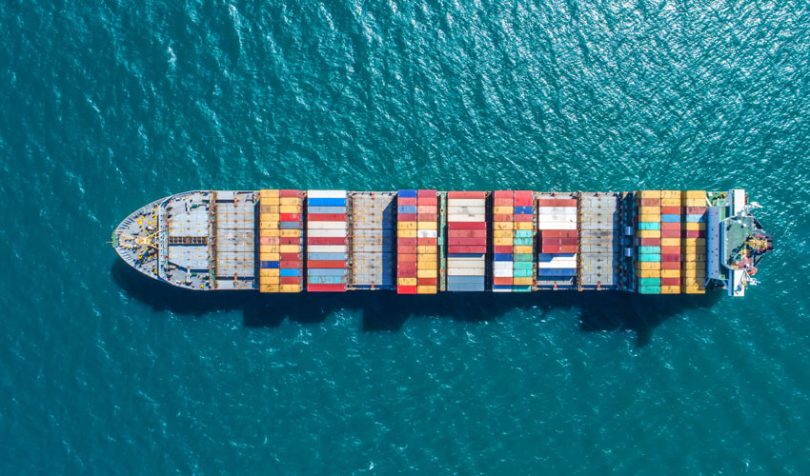Yesterday the World Economic Forum (WEF) announced a new initiative “Redesigning Trust with Blockchain in the Supply Chain” to ensure blockchain is deployed in an “interoperable, responsible and inclusive way”. There’s much to gain in terms of efficiency, transparency and interoperability.
The group aims to co-design an open source roadmap or toolkit for blockchain deployment. Given blockchain is a team sport, many issues are not technology related. Hence the group plans to look at both technical and non-technical drivers of both risks and success.
The emphasis is on drawing from a broad base of participants to address the fragmented supply chain industry. As a result, the group includes logistics companies, container shippers, ports, blockchain startups, importers and exporters, the International Organization for Public-Private Cooperation and more than 20 governments.
The 100 organizations include World Food Programme, Hitachi, Maersk, Mercy Corps, Korea Customs Service, Llamasoft and Ports of Los Angeles, Oakland, Valencia and Rotterdam.
Many initiatives
With an emphasis on shipping, the WEF project may overlap with three major existing initiatives: Tradelens from IBM and Maersk (Maersk is part of the WEF initiative); the Global Shipping Business Network which includes CargoSmart and five of the top ten container shippers; and Kuehne + Nagel the world’s largest shipping freight forwarder is working with Accenture on a project.
There’s also a major logistics standards setting initiative, the Blockchain in Transport Alliance (BiTA) which recently published its first standard.
WEF project scope
“As blockchain technology is so new, supply chain decision-makers need clear guidelines, tools and frameworks to help them maximize the benefits and minimize the risks of this technology,” said Nadia Hewett, project lead, Blockchain and Distributed Ledger Technology, World Economic Forum. “This toolkit will be built by the industry and piloted, so we can see what works and what does not. We are going to piece together the puzzle, so others don’t have to start from scratch.”
We were unclear about how much of the toolkit will be standards, plans or the technology itself. The WEF clarified that the emphasis is on guidelines and considerations, as opposed to the technology. It also aims to ensure the guidelines are inclusive and international without a purely Western focus.
In an emailed response to Ledger Insights, the WEF said that the guidelines, norms or frameworks would govern “what constitutes a fair, neutral and well-designed blockchain solution. The ecosystem needs such frameworks to ensure that there is careful consideration of unintended consequences, that all players remain able to realize the full potential of this foundational technology and that risks are minimized.”
The WEF isn’t shy about the challenge it faces. It states: “In most cases, projects have come about as the result of the efforts of one or two parties focused primarily on their own interests, without taking into consideration unintended consequences or downstream effects on other parties or on the system as a whole.”
It continues: “The result is a fractured system that leaves behind parts of the sector while capturing economic efficiency gains for certain actors. In fact, the hyper-focus on efficiency gains can reinforce existing mistrust or competition and undermine or even block the transformation that blockchain technology has the potential to bring about.”
One of the WEF project participants is the World Food Programme, and the Head of its Innovation Accelerator Bernhard Kowatsch is looking forward to participating. “A big part of WFP’s core operations revolve around logistics and supply chain, distributing food and other life-saving items to more than 90 million people in 83 countries around the world,” said Kowatsch. “Becoming a part of the Forum’s Redesigning Trust: Blockchain for Supply Chain community has provided us with the opportunity to share real-world challenges and use cases, making invaluable connections between the private and public sectors to assist us in the development of our own innovative blockchain for supply chain projects.”
Ledger Insights asked about the project’s governance. The WEF responded: “The toolkit will have considerations and guidelines around inclusivity, interoperability, data privacy, security and ecosystem governance. Companies are volunteering their expertise to benefit everybody. Part of this is to get to a place where we can be more inclusive as to how the technology is used. The aim is to create guidance for companies that typically wouldn’t be able to afford the consultants to help them understand.”
Last month the WEF released two related whitepapers, one covering the top level concepts and the other looking at identity.
Participant companies
Some organizations have been removed where there isn’t explicit consent to share company names.
A.P. Møller-Maersk A/S
Accenture
Adani Group
Bahrain Customs
Bahrain Economic Development Board
Baker McKenzie
Blockchain in Transportation Alliance
Blocklab
Cardiff University
CargoX
Consensys AG
Curl Analytics
Digital Container Shipping Association (DCSA)
Deloitte
Devine Intermodal
Dex Freight
Diginex
Digital Catapult
Digital Supply Chain Institute
Dispatch Labs
Dubai Blockchain Center
Dubai Future Foundation
Dutch Blockchain Coalition
Euphonious Innovations Private Limited
Everledger
EVRYTHNG
Federation of European Private Port Companies and Terminals
GE Transportation
Harbor Trucking Association
Hitachi Ltd
Independent Consultant
Integral Petroleum SA
International Port Community Systems Association (IPCSA)
IOTA
Israel Ports Development & Assets Company
Kmart Corporation
Korean Customs
Kühne Logistics University
Latham & Watkins, LLP
Linux Foundation
LLamasoft
Marine Transport International
Maritime and Port Authority of Singapore
Mercy Corps
Ministry of Shipping India
Mobility Open Blockchain Initiative
NEC Corporation
Next Level Information
Organisation for Economic Co-operation and Development (OECD)
OriginTrail
Panalpina World Transport Holding Ltd
Port of Genoa
Port of Klaipeda
Port of Los Angeles
Port of Oakland
Port of Rotterdam
Port of Valencia
R3 CEV
RISE Research Institutes of Sweden AB
Shipchain
SHIPNEXT
Skuchain
TBSx3
Tel Aviv University
The Bureau
The Inter-American Development Bank
The World Bank
TIBA Group
T-mining
Truckl.io
United Nations World Food Programme (WFP)
Vara Technology
Wave
World Bank Group
Yilport
The article has been updated with additional information provided by WEF







